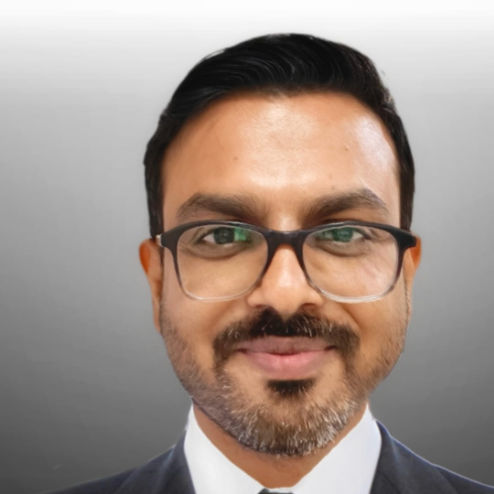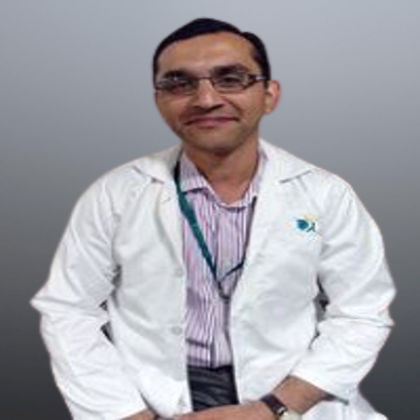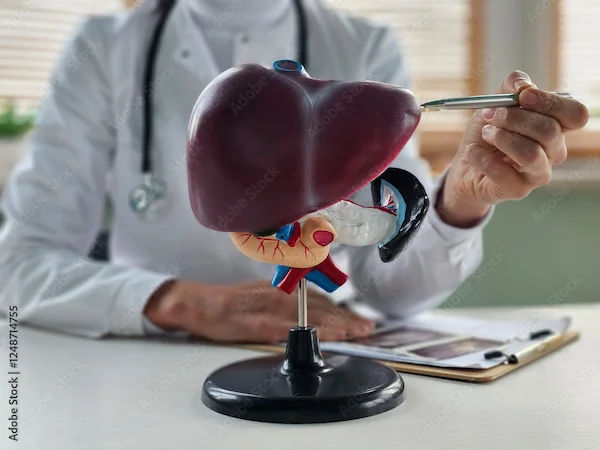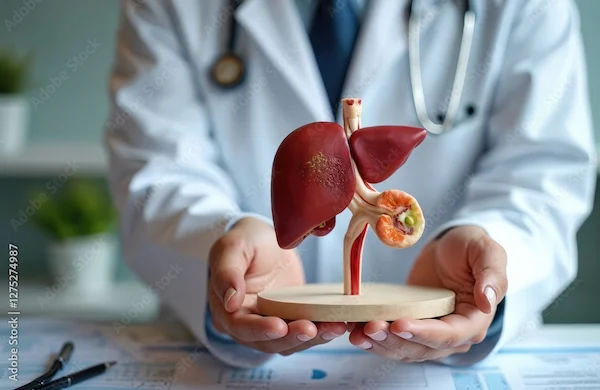Liver Health And Varices: Understanding The Connection and How to Prevent Complications
Understand the link between liver health and varices, their causes, symptoms, and risks. Learn prevention strategies and treatment options to avoid complications and maintain a healthy liver.

Written by
Last updated on 3rd Jul, 2025
Introduction
The liver is one of the most important organs in the body, performing hundreds of vital functions that contribute to your overall health. From detoxifying harmful substances to helping digest food and store energy, the liver plays a crucial role in keeping you healthy. However, when liver health is compromised, it can lead to complications, including a condition known as varices—enlarged veins that can be dangerous if left untreated. In this article, we will explore the basics of liver health, how liver disease leads to varices, and what you can do to prevent liver complications. We’ll also cover the symptoms, diagnostic methods, and treatment options for managing varices, helping you understand how to protect and improve your liver health.
The Vital Role of the Liver in Your Body
The liver is a powerhouse organ located on the right side of your abdomen. It is essential for several key functions:
Detoxification: The liver helps remove harmful toxins from the blood, including medications, alcohol, and waste products.
Bile Production: The liver produces bile, a fluid that helps digest fats and absorb fat-soluble vitamins (A, D, E, and K).
Metabolism: The liver processes nutrients from the food you eat, converting them into energy and storing glucose for future use.
Protein Synthesis: The liver makes important proteins like albumin, which helps maintain blood volume and pressure, and clotting factors that prevent excessive bleeding.
Given the many essential functions of the liver, it’s easy to see how liver health is directly connected to overall well-being. However, when the liver becomes damaged, it can lead to a wide range of complications, including varices, which can be life-threatening if not addressed.
What Are Varices and How Do They Relate to Liver Health?
Varices are enlarged veins, most commonly found in the oesophagus (the tube that connects your mouth to your stomach) or the stomach. These veins can form as a result of a condition called portal hypertension, which occurs when there is increased pressure in the portal vein—this is the blood vessel that carries blood from the intestines and spleen to the liver.
When the liver is damaged by diseases such as cirrhosis or hepatitis, its ability to properly process blood is impaired. This leads to a backup of blood in the portal vein, increasing pressure in the veins connected to it. As this pressure builds, it causes the veins in the oesophagus or stomach to become swollen and enlarged, forming varices.
If left untreated, varices can rupture and bleed, which is a medical emergency that can lead to severe blood loss. The good news is that varices can often be managed with the right treatment and lifestyle changes, which is why early detection and proactive liver health care are so important.
Common Liver Diseases That Lead to Varices
Several liver diseases can lead to the development of portal hypertension and varices. The most common causes include:
1. Cirrhosis
Cirrhosis is the scarring of the liver tissue due to long-term liver damage. This can be caused by chronic alcohol use, viral hepatitis, fatty liver disease, or other conditions. As cirrhosis progresses, the liver becomes less able to function properly, and portal hypertension develops, increasing the risk of varices.
2. Hepatitis B and C
Hepatitis B and C are viral infections that cause inflammation of the liver. If left untreated, both conditions can lead to chronic liver disease and cirrhosis, eventually contributing to the development of varices.
3. Non-Alcoholic Fatty Liver Disease (NAFLD)
NAFLD is a condition in which fat builds up in the liver without excessive alcohol consumption. It is often linked to obesity, diabetes, and high cholesterol. Over time, NAFLD can progress to cirrhosis and lead to portal hypertension.
4. Alcohol-Related Liver Disease
Chronic alcohol use is a leading cause of cirrhosis and liver damage. Excessive drinking causes inflammation and scarring in the liver, which eventually disrupts its normal function and increases the risk of portal hypertension and varices.
Symptoms and Signs of Varices
Varices do not always cause noticeable symptoms until they become large or begin to bleed. Common signs and symptoms of varices or their complications include:
Upper gastrointestinal bleeding: This can lead to vomiting blood (hematemesis) or passing black, tarry stools (melena), which may indicate bleeding from varices.
Jaundice: A yellowing of the skin or eyes, which can occur when the liver is not functioning properly.
Fatigue: Feeling unusually tired or weak can be a sign that the liver is not filtering toxins properly.
Swelling in the abdomen (ascites): This occurs when fluid builds up in the abdomen due to liver disease.
Easy bruising or bleeding: As the liver’s ability to produce clotting factors diminishes, you may notice an increased tendency to bruise or bleed.
If you experience any of these symptoms, especially vomiting blood or passing black stools, seek medical attention immediately. These may indicate a bleeding varix, which requires urgent care.
Get Your Symptoms Checked By A Gastroenterologist
Risk Factors for Developing Varices
Several factors can increase the likelihood of developing liver disease and varices:
Chronic alcohol use: Excessive alcohol consumption is one of the leading causes of cirrhosis and varices.
Chronic viral hepatitis: Hepatitis B and C infections can lead to cirrhosis over time, raising the risk of portal hypertension and varices.
Obesity and metabolic syndrome: Conditions like obesity, type 2 diabetes, and high cholesterol can lead to fatty liver disease, which, over time, may progress to cirrhosis and varices.
Family history: Genetic factors can play a role in liver disease, increasing the risk of cirrhosis and varices in some individuals.
Older age: As you age, the liver’s ability to repair itself declines, increasing the risk of liver disease and complications like varices.
Preventative Measures to Maintain Liver Health
Maintaining liver health is crucial for preventing varices and other complications. Here are some key strategies to support your liver:
Avoid excessive alcohol consumption: Limit or eliminate alcohol intake to reduce your risk of liver disease.
Eat a balanced diet: A healthy, nutrient-rich diet supports liver function and helps prevent fatty liver disease and other conditions.
Exercise regularly: Physical activity helps maintain a healthy weight, which can reduce the risk of fatty liver disease and cirrhosis.
Get vaccinated: Vaccines for hepatitis A and B can protect you from viral infections that can cause liver damage.
Manage underlying conditions: If you have conditions like diabetes, high blood pressure, or high cholesterol, managing these can reduce your risk of developing liver disease.
Avoid toxins: Minimize exposure to harmful substances, including certain chemicals and over-the-counter medications, which can damage the liver.
Diagnostic Methods for Liver Disease and Varices
If you’re at risk for liver disease or have symptoms of varices, your doctor may perform a variety of tests to diagnose the condition:
Blood tests: These can help assess liver function and check for signs of infection, inflammation, or liver damage.
Get an LFT Done To Monitor Your Liver Health
Ultrasound: An ultrasound of the liver can help detect cirrhosis, liver scarring, and possible varices.
Endoscopy: A procedure where a flexible tube with a camera is used to examine the oesophagus and stomach for varices.
CT scan or MRI: These imaging techniques can provide detailed views of the liver and blood vessels.
Liver biopsy: In some cases, a small sample of liver tissue may be removed and examined to check for cirrhosis or other liver diseases.
Treatment Options for Varices and Liver Health
Treatment for varices focuses on preventing bleeding and managing liver disease:
Medications: Beta-blockers are often prescribed to lower the pressure in the portal vein, reducing the risk of variceal bleeding.
Endoscopic treatment: If varices are found, doctors may use a procedure called banding, where small rubber bands are placed around the varices to stop them from bleeding.
Liver transplant: In severe cases of cirrhosis, a liver transplant may be necessary to restore liver function and prevent complications like varices.
TIPS procedure (Transjugular Intrahepatic Portosystemic Shunt): This procedure involves creating a new pathway for blood flow to reduce portal hypertension and prevent variceal bleeding.
Conclusion
Maintaining liver health is essential for preventing complications like varices. By understanding the link between liver disease and varices, recognising the symptoms, and taking proactive steps to care for your liver, you can reduce your risk and improve your overall health. If you are at risk for liver disease or have concerns about your liver health, talk to your healthcare provider about the best prevention and treatment options for you.
Consult Top Doctors
Consult Top Doctors

Dr. Amit Pandita
Gastroenterology/gi Medicine Specialist
10 Years • MBBS. MD (INTERNAL MEDICINE) DrNB (GASTROENTEROLOGY AND HEPATOLOGY)
Delhi
Apollo Hospitals Indraprastha, Delhi

Dr. Ankit Vijay Agarwal
Gastroenterology/gi Medicine Specialist
14 Years • MBBS(Osmania), DNB(Internal Medicine ), DM ( Osmania) Consultant Gastroenterologist, Hepatologist and Advanced Therapeutic Endoscopist
Hyderabad
Apollo Hospitals Jubilee Hills, Hyderabad

Prof. Dr. M S Revathy
Gastroenterology/gi Medicine Specialist
22 Years • MBBS, MD(GM), DM (Med. Gastro)
Chennai
Apollo Hospitals Greams Road, Chennai
(225+ Patients)

Dr Piyush Vishwakarma
Gastroenterology/gi Medicine Specialist
11 Years • MBBS, MD, DrNB,
Delhi
Apollo Hospitals Indraprastha, Delhi

Dr. Seshadri Venkatesh P
Gastroenterology/gi Medicine Specialist
27 Years • DNB(Gen. Med.), DNB(Gastro)
Chennai
Apollo Hospitals Greams Road, Chennai
(50+ Patients)
Get Your Symptoms Checked By A Gastroenterologist

Dr. Amit Pandita
Gastroenterology/gi Medicine Specialist
10 Years • MBBS. MD (INTERNAL MEDICINE) DrNB (GASTROENTEROLOGY AND HEPATOLOGY)
Delhi
Apollo Hospitals Indraprastha, Delhi

Dr. Ankit Vijay Agarwal
Gastroenterology/gi Medicine Specialist
14 Years • MBBS(Osmania), DNB(Internal Medicine ), DM ( Osmania) Consultant Gastroenterologist, Hepatologist and Advanced Therapeutic Endoscopist
Hyderabad
Apollo Hospitals Jubilee Hills, Hyderabad

Prof. Dr. M S Revathy
Gastroenterology/gi Medicine Specialist
22 Years • MBBS, MD(GM), DM (Med. Gastro)
Chennai
Apollo Hospitals Greams Road, Chennai
(225+ Patients)

Dr Piyush Vishwakarma
Gastroenterology/gi Medicine Specialist
11 Years • MBBS, MD, DrNB,
Delhi
Apollo Hospitals Indraprastha, Delhi

Dr. Seshadri Venkatesh P
Gastroenterology/gi Medicine Specialist
27 Years • DNB(Gen. Med.), DNB(Gastro)
Chennai
Apollo Hospitals Greams Road, Chennai
(50+ Patients)




